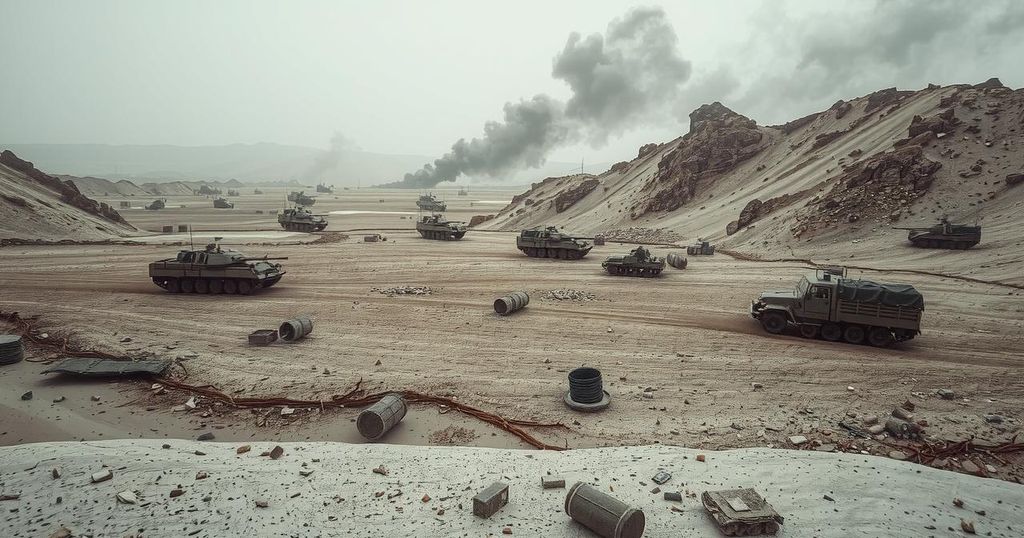US Military Actions in Yemen Result in High Civilian Casualties and Rising Tensions
The United States launched a significant bombing campaign against Yemen’s Houthis, resulting in at least 31 deaths and 101 injuries, largely among women and children. This operation marks the most extensive US military action in the region since Donald Trump took office. The Houthis’ ongoing drone attacks on international shipping have prompted this military response, leading to severe disruptions in global trade and drawing sharp warnings from both US and Iranian officials.
On Saturday, the United States initiated a significant bombing campaign against the Houthi rebels in Yemen, resulting in at least 31 fatalities and 101 injuries, many of whom were women and children. Anis al-Asbahi, a spokesperson for the Yemeni health ministry, provided this information on Sunday, highlighting the tragic impact of the strikes, particularly on vulnerable populations. Reports detailed that the strikes in northern Saada province hit residential areas, tragically killing four children and a woman, with disturbing footage emerging showing their treatment in local hospitals.
This operation represents the largest military engagement by the US in the Middle East since Donald Trump assumed the presidency. A US official informed Reuters that these attacks may persist for several weeks. In a social media declaration, President Trump emphasized his intention to utilize unprecedented lethal force against the Houthis unless they cease their assaults on international shipping routes.
The Houthis have escalated their drone and missile attacks on maritime traffic in the Red Sea and Gulf of Aden since 2023, justifying their actions as solidarity with Palestinians under duress in Gaza. This ongoing conflict has majorly disrupted crucial shipping lines, which typically account for approximately 12 percent of worldwide trade, forcing many shipping companies to reroute around Africa.
In response, the Houthi political bureau condemned the US attacks, labeling them a “war crime” and asserting, “Our Yemeni Armed Forces are fully prepared to respond to escalation with escalation.” Reports indicate air strikes also occurred in Sanaa, al-Bayda, and Radaa, specifically targeting Houthi military facilities and a power station, which led to widespread power outages in the region.
President Trump also directed warnings towards Iran, urging the cessation of its support for the Houthis. He stated that any threat from Iran would lead to accountability, asserting that the United States would not respond kindly. In turn, Hossein Salami, a commander of the Islamic Revolutionary Guard Corps, responded by emphasizing the autonomy of the Houthis in their strategic decisions and warned of a robust Iranian response to any perceived aggression.
Iranian Foreign Minister Abbas Araghchi further urged the US to cease its military operations in Yemen, asserting that Washington should not presume to dictate Iranian foreign policies.
The US bombing campaign in Yemen has resulted in significant civilian casualties and has heightened tensions in the region. President Trump’s commitment to using overwhelming force against the Houthis reflects a serious escalation in US military involvement. The ongoing Houthi missile attacks on international shipping routes underscore the complex geopolitical dynamics at play, which also involve Iran’s support for the Houthis. As the situation develops, the potential for further conflict remains a pressing concern.
Original Source: www.middleeasteye.net








Post Comment